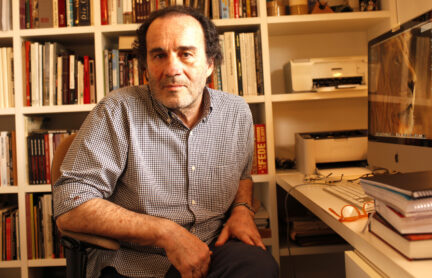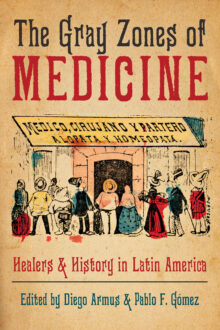
Diego Armus
Diego Armus is professor of Latin American history at Swarthmore. He is author or editor of half a dozen books on topics related to the history of disease and health, among them The Ailing City: Health, Tuberculosis and Culture in Buenos Aires, 1870–1950 and Disease in the History of Modern Latin America: From Malaria to AIDS.
The Gray Zones of Medicine
Healers and History in Latin America
Health practitioners working in gray zones, or between official and unofficial medicines, played a fundamental role in shaping Latin America from the colonial period onward. The Gray Zones of Medicine offers a human, relatable, complex examination of the history of health and healing in Latin America across five centuries. Contributors uncover how biographical narratives of individual actors—outside those of hegemonic biomedical knowledge, careers of successful doctors, public health initiatives, and research and medical institutions—can provide a unique window into larger social, cultural, political, and economic historical changes and continuities in the region. They reveal the power of such stories to illuminate intricacies and resilient features of the history of health and disease, and they demonstrate the importance of escaping analytical constraints posed by binary frameworks of legality/illegality, learned/popular, and orthodoxy/heterodoxy when writing about the past. Through an accessible and story-like format, this book unlocks the potential of historical narratives of healings to understand and give nuance to processes too frequently articulated through intellectual medical histories or the lenses of empires, nation-states, and their institutions.

